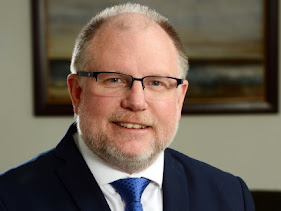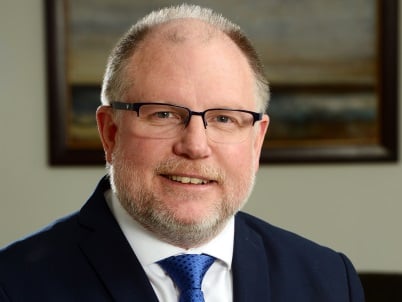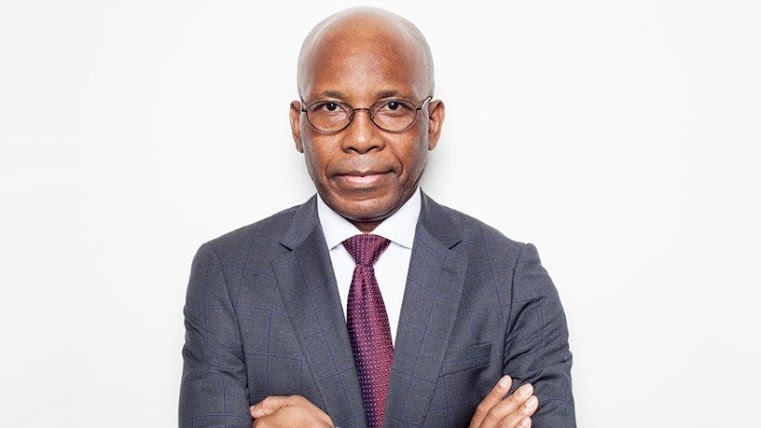The future of transacting with NuPayGO

Despite South Africa being one of the most financially inclusive countries on the continent, Johan Gellatly, Managing Director of Altron FinTech, still believes we have a long way to go.

Boston Consulting Group (BCG) defines financial inclusion as the "adoption, usage, and sustainability of financial services". Their research indicates that family prosperity, GDP growth and reduction of poverty rates are closely linked to financial inclusion, further demonstrating that this should be a priority for building a promising future for South Africa.
"One of Altron's social strategic pillars is to deliver affordable financial inclusion products and solutions that seek to open our economy to the ‘unbanked',” says Gellatly. “This was the thinking behind the launch of Altron’s NuPayGO EFT point of sale (POS) product – a cost-effective payment solution to accept real-time debit and credit card payments from anywhere.
“We’re trying to address a portion of the market who have never had access to 21st century payment methods,” he explains.
“This primarily relates to the informal sector, such as street vendors, who transact almost exclusively in cash, placing them at a high risk of theft.”
In a country like South Africa, where crime is a daily reality, Gellatly believes there can only be financial inclusion once every individual operating in our economy has access to secure financial transactional infrastructure.
Who stands to benefit?
NuPayGO is priced at a price point that is accessible to people who may not have the financial resources necessary to enter into a formal relationship with any of the traditional financial service providers.
While the widespread adoption of cost-effective EFT POS devices like NuPayGO has the potential to benefit the entire economy because of its potential to further aid financial inclusion, Gellatly identifies three key groups in particular who stand to benefit from using such a device:
- Informal traders. “This solution is convenient, secure and increases sales by offering additional payment methods. The device also offers real-time analytics to help merchants review their transaction history and improve their offerings.”
- Those who’ve gone cashless. “More and more people are transacting using only their card or mobile devices, but still want to transact in their community and support informal traders.”
- Those who operate a mobile business. “People who travel extensively to offer services, for example, mobile beauty therapists who render their services at people’s workplaces or homes but would still like to accept card payments.”
Gellatly adds that as more people choose to transact using NuPayGO, the team behind the development of the device functionality will look to incorporate additional services to increase a merchant’s product offering. “Soon, customers will be able to purchase products like mobile data, airtime and prepaid electricity when transacting with NuPayGo.”
Barriers to entry
In spite of the benefits of NuPayGO to underserved South Africans, and the role that it can play in furthering the progress of financial inclusion in the country, there are still significant systemic challenges preventing widespread adoption.
The most significant of these challenges is mistrust, stemming from a lack of financial and technological education. “This technological mistrust is, however, not unique to NuPayGO,” Gellatly adds.
Fifty-one percent of the respondents to the BCG survey stated they did not own a smartphone and only 15% of smartphone owners used a banking app. This was attributed to a fear of Internet fraud and consumer resistance to the idea that virtual transactions equated to physical currency.
This preference for cash is clearly represented in the way that consumers transact. As of 2018, more than 95% of payment transactions in sub-Saharan Africa are done in cash. This is slowly changing, however, as more people move towards becoming cashless.
As Gellatly explains, the final two significant challenges facing widespread EFT POS adoption are as a result of poor geographic data connectivity and traditional banking structures linked to card transactions.
“Merchants using the NuPayGO device still need a bank account to process these kinds of transactions, and bank account fees can be expensive for some. We are consistently working with our sponsor banks to reduce these fees to make mobile banking more accessible.
“We are also working towards creating a fee friendly payment structure to address the issue of card transaction fees. Our fees are significantly lower than many of our competitors, but some merchants are understandably hesitant to forgo that transaction percentage, regardless of how minimal it is,” he adds.
Gellatly says that ultimately, the solution to overcoming these barriers comes down to education and trust. “Merchants need to be convinced that the benefits of digital transactions: fast, secure, convenient, enabling them to increase sales by accepting more payment methods, outweigh any possible drawbacks – theft.”
NuPayGO in 2021 and beyond
Portable EFT POS devices like NuPayGO have gotten a boost from an unlikely source this year – the COVID-19 pandemic. The need for contactless payment methods to reduce the chance of infection has led to many merchants adopting tap-and-go payments and causing some to refuse to accept cash payments altogether.
The pandemic could speed up the shift towards digital payments as consumers shun ATM machines and EFT POS devices that have been touched by many hands in favour of tap-and-go and mobile transactions.
“We believe that the more transaction options a customer and a merchant have, the more financial power they have.
“Conversely, if the traditional financial structures in South Africa are not forward-thinking and evolving with technology, innovative products like NuPayGO cannot be developed and sustained. This means that South Africans without the financial means to form a relationship with the traditional financial service providers will continue to be financially excluded, and our growing informal sector will suffer,” concludes Gellatly.


